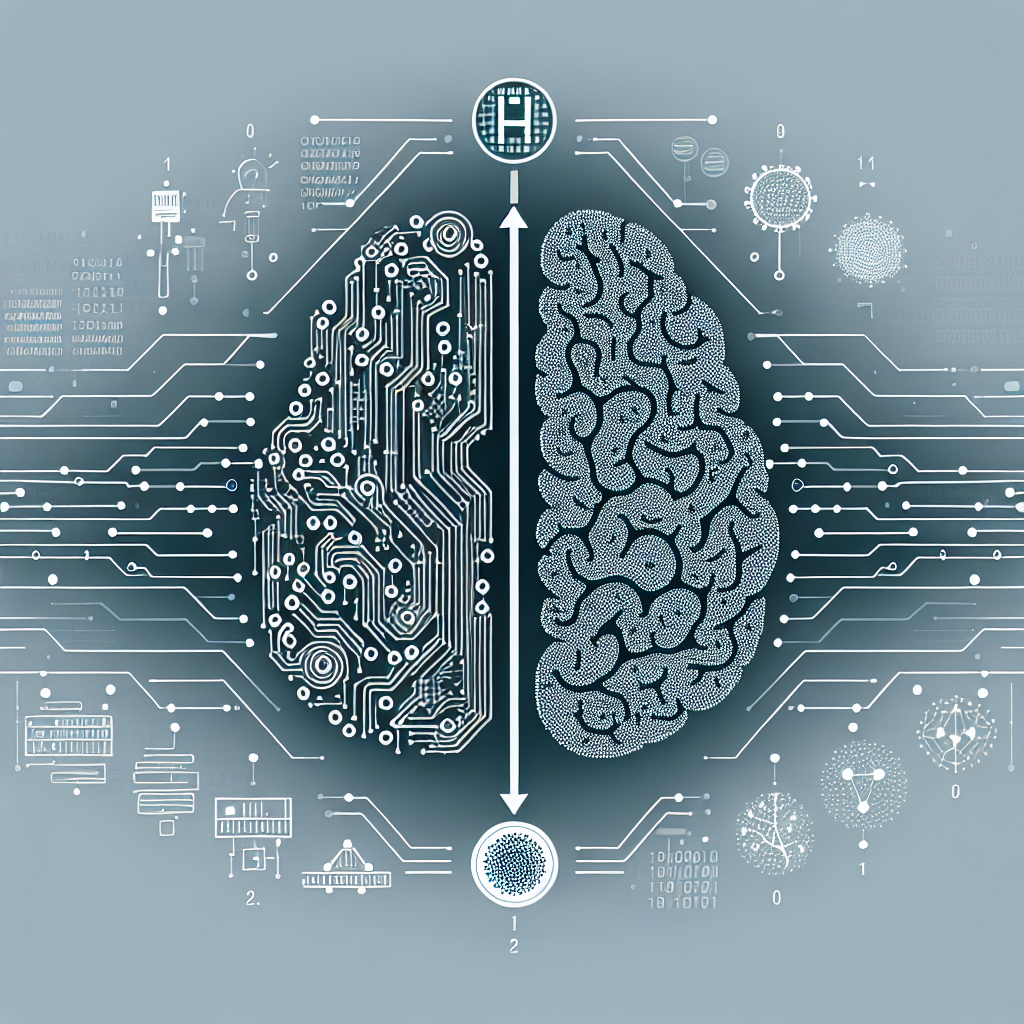The Evolution of AGI: From Narrow AI to General Intelligence
Artificial General Intelligence (AGI) is the ultimate goal of artificial intelligence research. It refers to a machine or software that possesses the ability to understand, learn, and apply knowledge in a way that is equivalent to human intelligence. While we are still far from achieving true AGI, significant progress has been made in the field of AI over the past few decades. In this article, we will explore the evolution of AGI, from narrow AI to the potential for achieving general intelligence.
Narrow AI vs. General Intelligence
Narrow AI, also known as weak AI, refers to AI systems that are designed for a specific task or set of tasks. These systems are very good at what they are programmed to do, but they lack the ability to generalize and apply their knowledge to new situations. Examples of narrow AI include speech recognition systems, recommendation algorithms, and image recognition software.
On the other hand, general intelligence, or AGI, is the ability to learn, reason, and solve problems in a way that is comparable to human intelligence. AGI systems would be able to understand complex concepts, learn from experience, and adapt to new situations. Achieving AGI would require developing AI systems that can perform a wide range of tasks and exhibit a level of flexibility and creativity that is currently beyond the capabilities of narrow AI systems.
The Evolution of AI
The field of artificial intelligence has evolved significantly since its inception in the 1950s. Early AI research focused on developing algorithms and systems that could perform specific tasks, such as playing chess or solving mathematical problems. These early AI systems were limited in their capabilities and lacked the ability to generalize or learn from experience.
In the 1980s and 1990s, the field of AI experienced a resurgence with the development of machine learning algorithms and neural networks. These advances enabled AI systems to learn from data and improve their performance over time. This led to the development of narrow AI systems that could perform tasks such as speech recognition, natural language processing, and image recognition with a high degree of accuracy.
In recent years, deep learning algorithms and neural networks have revolutionized the field of AI, enabling the development of more advanced AI systems that can perform complex tasks with a level of accuracy that was previously thought impossible. These advances have brought us closer to achieving AGI, but there are still many challenges that need to be overcome before we can create truly intelligent machines.
Challenges in Achieving AGI
There are several key challenges that need to be addressed in order to achieve AGI. One of the biggest challenges is developing AI systems that can learn from experience and generalize their knowledge to new situations. While deep learning algorithms have made significant progress in this area, they still struggle with tasks that require higher-level reasoning and understanding.
Another challenge is designing AI systems that can exhibit creativity and innovation. While current AI systems are very good at performing specific tasks, they lack the ability to think outside the box and come up with new ideas. Developing AI systems that can exhibit creativity and innovation will be essential for achieving AGI.
Finally, ethical and societal issues surrounding AI must be addressed in order to ensure that AGI is developed in a responsible and ethical manner. Issues such as bias in AI algorithms, privacy concerns, and the impact of AI on the job market will need to be carefully considered as we move closer to achieving AGI.
FAQs
Q: How close are we to achieving AGI?
A: While significant progress has been made in the field of AI, we are still far from achieving true AGI. It is difficult to predict exactly when we will achieve AGI, as there are many challenges that need to be overcome. However, many experts believe that we could see significant advancements in AI in the next decade.
Q: Will AGI be dangerous?
A: There are concerns about the potential dangers of AGI, particularly if it is not developed in a responsible and ethical manner. AI systems with general intelligence could have the ability to outsmart humans and potentially cause harm if not properly controlled. It will be important to establish guidelines and regulations to ensure that AGI is developed in a safe and ethical way.
Q: What are the potential benefits of AGI?
A: AGI has the potential to revolutionize many aspects of society, including healthcare, transportation, and education. AI systems with general intelligence could help us solve some of the world’s most pressing problems, such as climate change, poverty, and disease. AGI could also lead to advancements in science and technology that are currently beyond our reach.
In conclusion, the evolution of AGI from narrow AI to general intelligence represents a significant milestone in the field of artificial intelligence. While we are still far from achieving true AGI, significant progress has been made in recent years that brings us closer to this goal. By addressing the key challenges and ethical considerations surrounding AI, we can work towards creating truly intelligent machines that have the potential to revolutionize society and improve the lives of people around the world.

